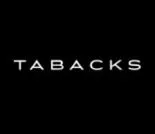In the first quarter of 2021, Agriculture, Land Reform and Rural Development Minister Thoko Didiza stated that she wants to pave the way for the industrialisation and commercialisation of cannabis as a way to boost the economy. Such a stance inevitably sparks talk of creating economic growth, job creation and even the reduction of unemployment. It is evident that in recent years, the cannabis industry worldwide has grown rapidly as a multi-billion dollar sector. With this much reform has developed across the world with many countries enacting some form of legal framework for the product and South Africa is no different.
In 2018, South Africa legalised the private recreational use of cannabis in a ground breaking Constitutional Court judgment which ruled that the use, possession and cultivation of cannabis in private dwellings was not illegal and should be allowed in South Africa (Minister of Justice and Constitutional Development and Others v Prince). In its judgment the Constitutional Court specified that the South African government had two years to reform the cannabis laws of South Africa and ensure that until such time, read certain stipulations into the law that decriminalised private use and cultivation of cannabis. In September 2020, the South African government published the draft Cannabis for Private Purposes Bill to address the concerns raised by the Constitutional Court. As the bill has to date not been signed into law, there is still much confusion in South Africa from a legal perspective what the position is when it comes to the acquisition, use, possession, cultivation, manufacture and sale of cannabis and cannabis products.
The purpose of this article is to guide prospective entrants into the cannabis market in South Africa on how to navigate the legal landscape and plan for operational readiness.
Current cannabis legislation in South Africa
At present, two pieces of legislation in South Africa regulate the acquisition, use, possession, cultivation, manufacture and sale of cannabis and cannabis products: namely the Drugs and Drugs Trafficking Act 140 of 1992 and the Medicines and Related Substances Act 101 of 1965 ("Medicines Act").
The primary piece of legislation regulating cannabis and cannabis products is the Medicines Act. When considering the Medicines Act, one needs to clearly separate the components of cannabis and cannabis products as follows:
- cannabidiols (CBD), which is non-psychoactive
- tetrahydrocannabinol (THC), which is psychoactive in nature
- the cannabis plant itself with all its components
CBD
CBD is listed as a schedule 4 substance in the Medicines Act and would ordinarily require a prescription and need to be registered as a medicine. There are however current exceptions in which CBD may be classified as a schedule 0 substance and can be freely purchased off the shelf or online. Schedule 0 CBD comprises of the following:
- CBD products providing a maximum daily dose of 20mg of CBD, and making a general health enhancement, health maintenance or relief of minor symptoms (low-risk) claim; or
- processed products made from cannabis raw plant material intended for ingestion, containing 0.0075% or less of CBD.
The above exclusions therefore allow for CBD products to be sold, exported and/or imported without a permit from the Director-General and may be purchased at any retailer without a prescription. It must be noted however that any person who exports, imports or manufactures CBD outside of the above exclusions still has to comply with schedule 4 and must be in possession of a permit issued in terms of the Medicines Act, must comply with the Good Manufacturing Standards Practices standards and must have their products tested by an accredited laboratory. Furthermore, it must be noted that the process of extracting CBD or THC from the cannabis plant is considered to be 'manufacturing' in terms of the Medicines Act and requires a permit to manufacture in terms of section 22C of the Medicines Act.
Cannabis plant and THC
The cannabis plant and THC are classified within schedule 7 of the Medicines Act, with specific exceptions. Schedule 7 substances are those that are deemed to have no legitimate medical use. The exemptions apply to certain processed hemp fibre products (e.g. textiles, bricks, ceiling boards) and processed cannabis seed products (e.g. hemp seed oil, cosmetics containing hemp seed oil).
Therefore, the acquisition, use, possession, manufacturing or supply of cannabis for industrial/commercial purposes (which falls within the scope of schedule 7) may be undertaken by persons who hold a permit issued by the Director-General in terms of section 22A(9)(a)(i) of the Medicines Act. A permit can be issued for any or all of the following activities, including to:
- grow and produce cannabis and cannabis resin
- extract and test cannabis, cannabis resin and/ or cannabinoids
- manufacture a cannabis-containing or cannabinoid-containing medicine
- import a cannabis-containing medicine or cannabinoid-containing medicine
- export a cannabis-containing medicine or cannabinoid-containing medicine
- distribute a cannabis-containing medicine or cannabinoid-containing medicine
Acquiring such a permit is no easy task and a number of requirements would need to be met, including having a strictly controlled farm/facility already established/built and available for inspection, as well as third party agreements with seed banks, waste management companies, laboratory testing facilities and off-take agreements.
The responsible statutory body in South Africa that regulates scheduled substances is the South African Health Products Regulatory Authority (SAHPRA). SAHPRA is empowered to issue a permit, on application and payment of the prescribed fee to a manufacturer, wholesaler, distributor of a scheduled substance to manufacture, import, export, act as a wholesaler of or distribute such scheduled substance.
The content of this article is intended to provide a general guide to the subject matter. Specialist advice should be sought about your specific circumstances.

